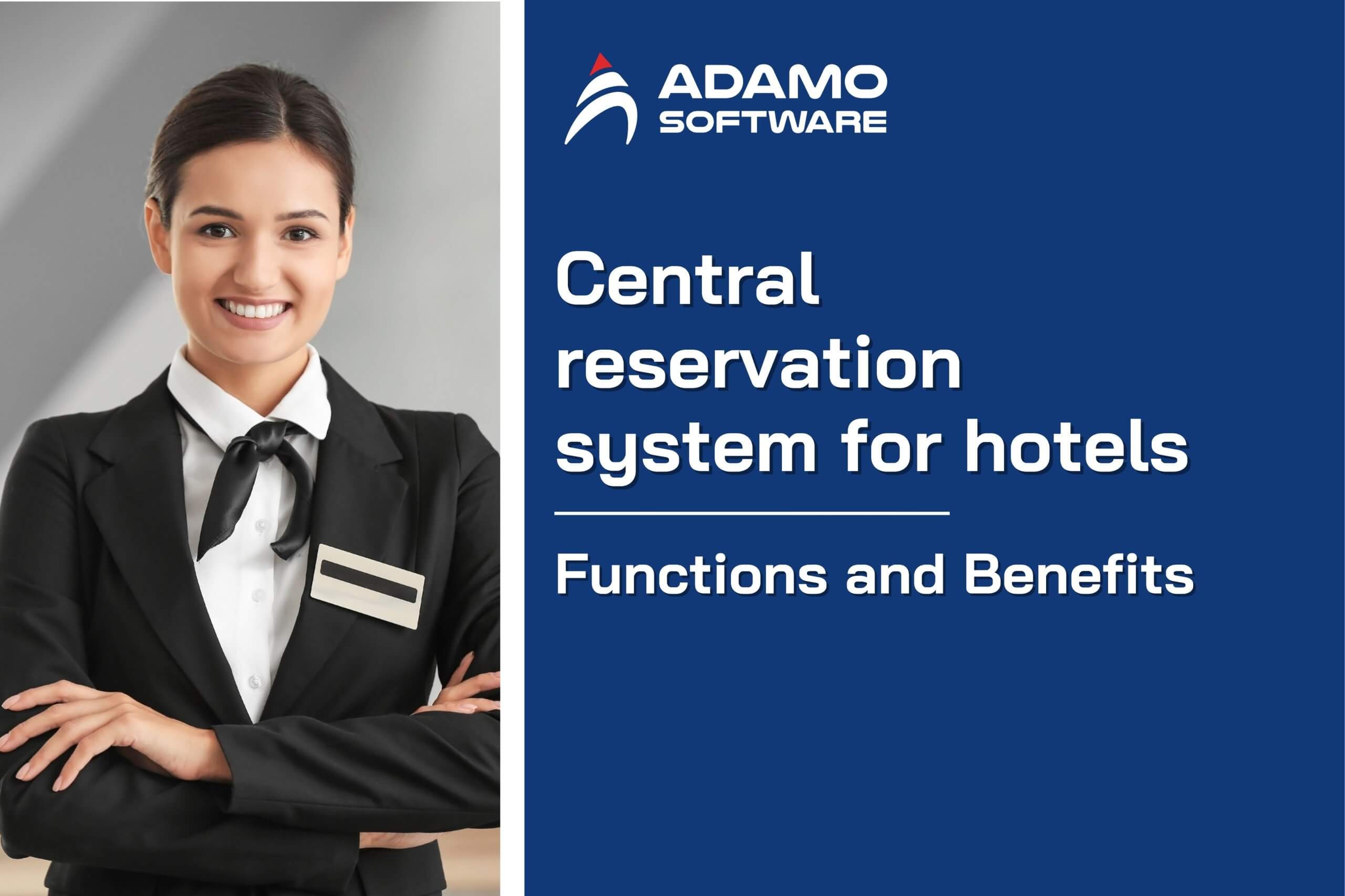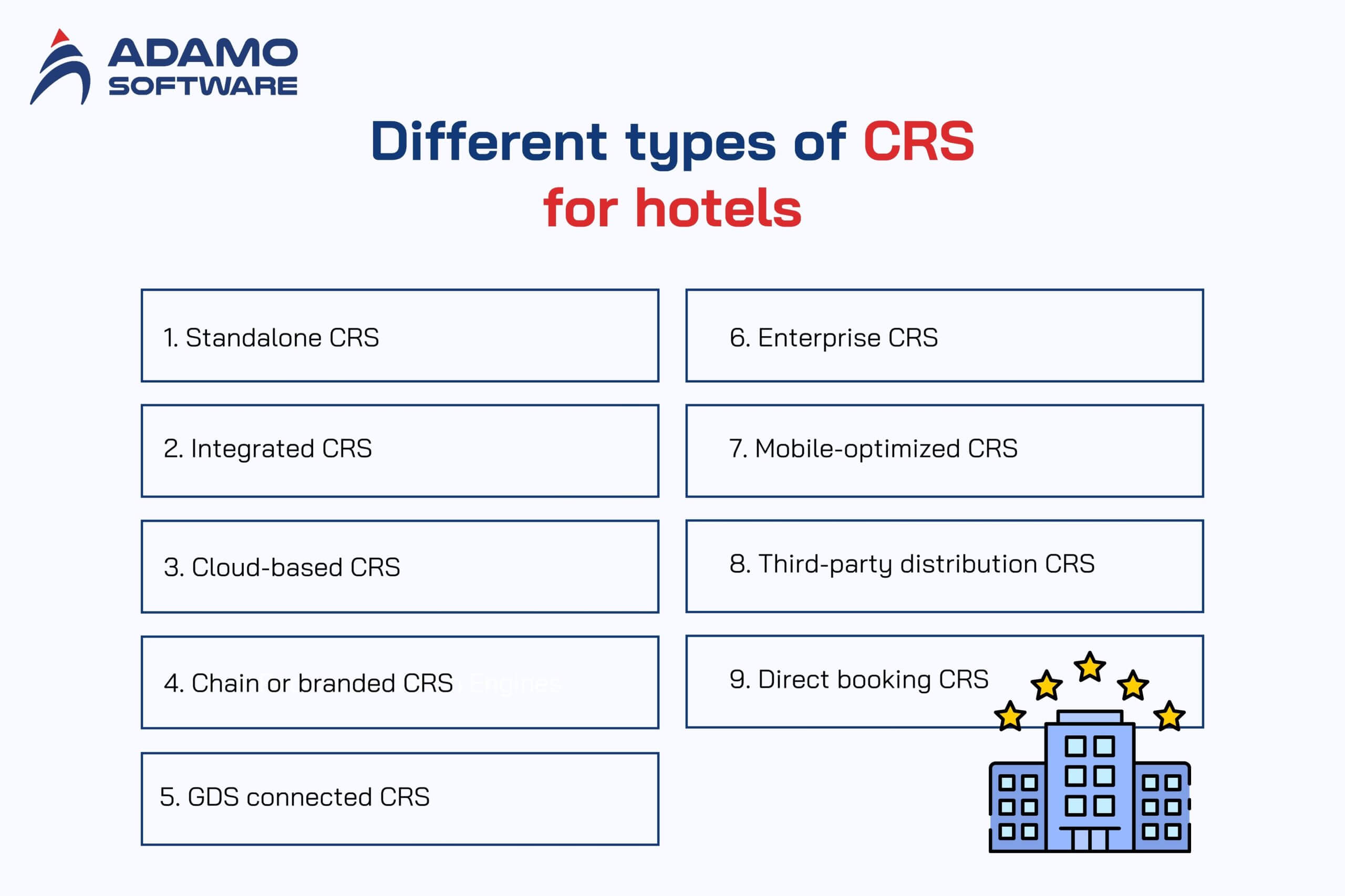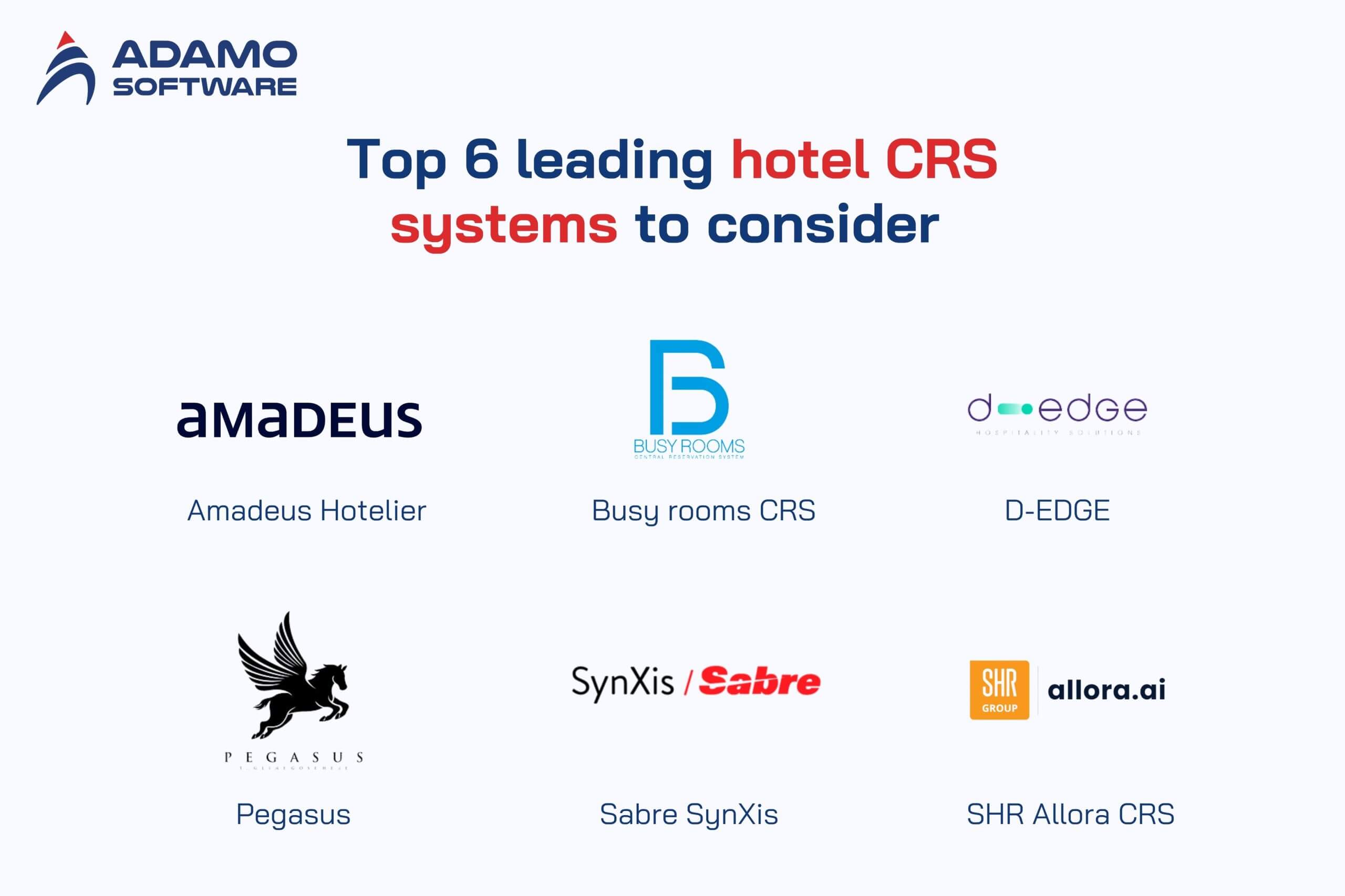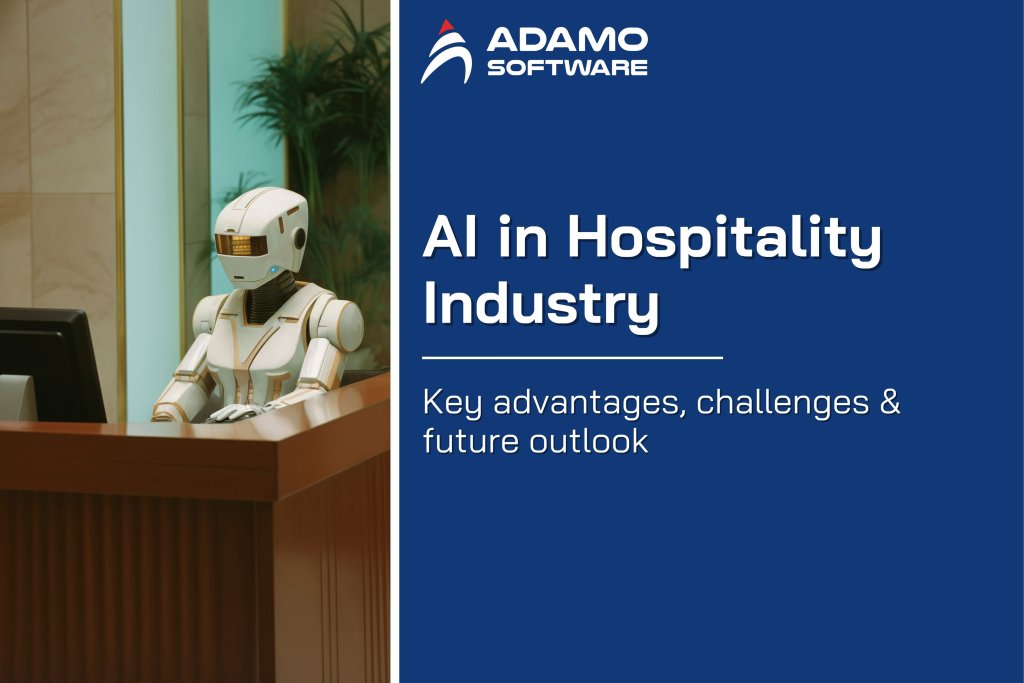Central Reservation System for Hotels: Functions and Benefits

This guide explores what a central reservation system for hotels is, how it works, the benefits it brings to hotels, and highlights the top 6 most popular CRS solutions in the industry.
Today, the percentage of travelers who do not book in the hotel industry is decreasing yearly. According to 2022 statistics, travelers tend to conduct extensive online research before booking, visiting an average of 5.5 websites. About 41 percent of travelers prefer OTAs to complete their bookings. Additionally, 29 percent turn to travel agents or tour operators, and another 29 percent contact the property directly. These figures demonstrate the importance of connecting multiple hotels to various online booking channels to grow and attract more customers.
A central reservation system (CRS) is an important hotel industry platform. It is built to centralize reservations, manage distribution, and monitor real-time prices and inventory. This article will analyze what CRS is, how it works, and why it is so important. You can develop a successful CRS system by understanding its basics.
I. What is a central reservation system for hotels?
The central reservation system for hotels (CRS) is a technology at the heart of hotel functions. It is a computer system that stores hotel data such as room availability, room rates, and inventory (ARI). It can help manage online and offline reservations. A channel manager supports the system, distributes hotel information to various sales channels (such as GDS, OTAs, independent travel agents, and the system’s website), synchronizes reservations, and processes transactions.
Implementing a central reservation system for hotels can increase overall efficiency by automating many hotel reservation processes. For example, it can instantly update the hotel’s ARI across all distribution channels or send confirmation emails. This can certainly speed up performance, reduce manual errors, and reduce labor costs. Additionally, the reservation capabilities of a central reservation system for hotels allow guests to easily manage their reservations, which increases their satisfaction and loyalty.
Another benefit is that it provides better visibility into booking activity and other relevant data, allowing for more comprehensive planning, forecasting, and marketing.
II. How does a Central Reservation System for hotels work?
The central reservation system for hotels is a brain that connects to many different channels, including:
1. Property Management System (PMS)
PMS manages the day-to-day operations of a hotel. These include customer data, room availability, and housekeeping services. The CRS integrates with your PMS in real time, providing consistent and accurate inventory updates across all channels.
2. Distribution Channels
This covers online travel agencies (OTAs), your hotel’s website booking engine, and the Global Distribution Systems (GDS) utilized by travel agents. CRS distributes hotel rates and availability to these channels, ensuring their reach is maximized.
3. Channel Manager
Finally, while some central reservation systems for hotels have integrated channel management functionality, some hotels may use their own channel manager. This tool allows businesses to simplify the process of updating rates and availability across all connected channels.
- A customer searches for a hotel on an OTA or website.
- A central reservation system for hotels provides real-time availability and rates from the PMS.
- When a customer makes a booking, the booking details are sent directly to the business’ PMS.
- A central reservation system for hotels updates all connected channels and reflects the updated availability.
- This seamless flow can eliminate the risk of overbooking and ensure a smooth customer experience from booking to check-in.
III. Different types of CRS for hotels
Many types of central reservation systems for hotels are available in the market today, each of which caters to different needs and strategies.
Here are some of the popular types of central reservation systems for hotels:

- Standalone CRS: This type operates independently without the need to integrate with other systems. It is suitable for establishments with simpler needs.
- Integrated CRS: This type of CRS works seamlessly with the hotel’s PMS, RMS, or CRM. Therefore, it provides a unified platform for streamlined operations.
- Cloud-based CRS: It can be accessed from anywhere with an internet connection. Therefore, it provides flexibility and allows users to update in real-time.
- Chain or branded CRS: This type suits hotel chains with multiple establishments and centralizes bookings at all locations.
- GDS Connected CRS: It connects to the Global Distribution System (GDS), allowing travel agencies to access room availability easily.
- Enterprise CRS: Designed specifically for large hotel groups or chains. It can handle large booking volumes and complex inventory needs.
- Mobile-optimized CRS: This CRS ensures a smooth booking process on mobile devices. Therefore, it caters to the growing number of on-the-go bookers.
- Third-party distribution CRS: It can maximize visibility by connecting to multiple third-party channels such as OTAs.
- Direct Booking CRS: This CRS focuses on driving bookings through the hotel website and reducing dependence on OTAs.
The choice of a hotel’s central reservation system depends on each hotel’s size and distribution strategy. When developing this system, you choose the one that best meets your customers’ needs and operational goals.
IV. Why hotel CRS is importance in travel & hospitality industry
A hotel’s central reservation system plays a vital role in the hotel business. It tracks booking data and has the right information to optimize distribution for the hotel. By transferring booking data from the PMS/s to distribution channels in real-time, a CRS allows hotels to reach customers across multiple channels as needed. In this respect, a hotel’s central reservation system functions in a similar way to a channel manager. While a CRS typically has more features than a standalone distribution solution, it does not offer the same power and performance as an integrated hotel commerce platform.
Four factors motivate hotels to implement a central reservation system in order to enhance their operations.
1. It has the potential to enhance customer experiences.
The CRS can assist hotels in the monitoring of visitor purchasing patterns and the recording of reservation data to facilitate the development of guest profiles.
2. It maintains a centralized location for all items.
Attempting to manually consolidate data from OTAs, the GDS, brick-and-mortar travel agencies, phone reservations, and other sources can be a challenging task. The central reservation system guarantees that all of this information is consistently current and accessible in a single location.
3. It enhances productivity.
It is imperative for hoteliers to identify methods that simplify and expedite backend operations, as admin errors, lost data, and sluggish processes all result in financial losses over time. The CRS saves hoteliers a significant amount of time, money, and effort by preventing data fragmentation.
4. It facilitates more informed decision-making.
A central reservation system enables a hotel to make more informed sales and pricing decisions and more precise performance forecasts by providing a higher level of visibility on bookings.
V. Benefits of Central Reservation System for hotels
A central reservation system for hotels is a tool that can help improve the efficiency of hotel operations. Here are some of the benefits that businesses can take advantage of:
The central reservation system for hotels can help customers get more bookings. On the other hand, it will allow hoteliers to have higher room occupancy rates. At the same time, it will increase revenue and profits.
Another great benefit is that this system can reduce accommodation provider or hotel costs. Because it can provide an easy and quick way to book rooms, reducing the number of calls received from customers wanting to book rooms.
In addition, it also helps automate the process to be more efficient. This gives hotel staff more time to manage other aspects of marketing campaigns like sales or new product development initiatives.
The result is increased profits from existing customers while attracting new customers through word-of-mouth recommendations from satisfied customers who have visited. It helps attract a higher volume of new customers without making them spend too much time searching on the website.
You can explore more about Guide to Build Online Booking Engine for Hotels, Airlines and Travel here.
VI. Top 6 leading hotel CRS systems to consider
The number of booking channels that hospitality businesses must manage is often exponential. This includes websites for online travel agencies, bed banks, GDSs, and metasearch engines.
The most effective distribution strategy in the hospitality industry is dynamic. Therefore, hoteliers need the right tools to execute their strategy effectively. Such as managing hundreds of pricing plans across multiple channels to create highly segmented and customized marketing campaigns.
That’s where a central hotel reservation system comes in. In this section, we’ll explore the top 6 central reservation system for hotels in the hospitality industry:

1. Amadeus Hotelier
First, Amadeus is one of the three largest GDS companies in the world. Its product portfolio includes a CRS with revenue management capabilities and supports multiple languages and currencies.
2. Busy Rooms
Next is the Busy Rooms CRS. It offers an adaptable, brandable, and scalable cloud-based central hotel reservation system designed to be a hub for day-to-day sales, marketing, operations, and revenue management.
3. D-EDGE
D-EDGE Hospitality Solutions is a European company formed after the merger of Availpro and Fastbooking. Their cloud-based central hotel reservation system is a complete solution that can be integrated with other applications.
4. Pegasus
Cendyn’s solution is a cloud-based CRS that integrates seamlessly with other PMSs and Revenue Management Systems, although it has built-in dynamic pricing functionality. It also comes with a booking engine and e-commerce platform. It targets hotel chains, casino hotels, hotel management companies, and boutique hotels.
5. Sabre SynXis
This CRS is part of the Sabre portfolio, another major GDS company. It best suits medium to large international brands with more complex operations. It can support multiple languages and payment options.
6. SHR Allora CRS
SHR Allora CRS was previously known as Windsurfer and was developed by Texas-based SHR. However, it has now been rebranded as Allora following SHR’s acquisition of Irish hotel technology provider Avvio.
Allora CRS is AI-based and is part of a suite of products that includes an RMS, a hotel booking engine, loyalty program functionality, and a central hotel reservation system, among others. It is aimed at independent hotels, resorts, and global hotel chains.
VII. Adamo Software: Your trusted partner in Hotel Management System

A CRS manages your bookings; however, what occurs during the remainder of the guest journey? Welcome to Adamo Software.
The hotel management software integrates effectively with your CRS, facilitating management from pre-arrival to post-stay feedback. The outcome includes optimized operations, increased guest satisfaction, and enhanced revenue.
Adamo Software is a trusted partner that develops custom-built hotel management systems that seamlessly integrate with the central reservation system for hotels. We help businesses streamline the entire guest journey, from pre-arrival processes to collecting post-stay feedback, ensuring smooth operations and enhanced guest satisfaction.
In addition, as your trusted travel and hospitality software development partner, Adamo offers custom solutions designed to optimize efficiency, improve guest experience, and increase your revenue. Contact us to build a robust, scalable system that will take your product to market.





